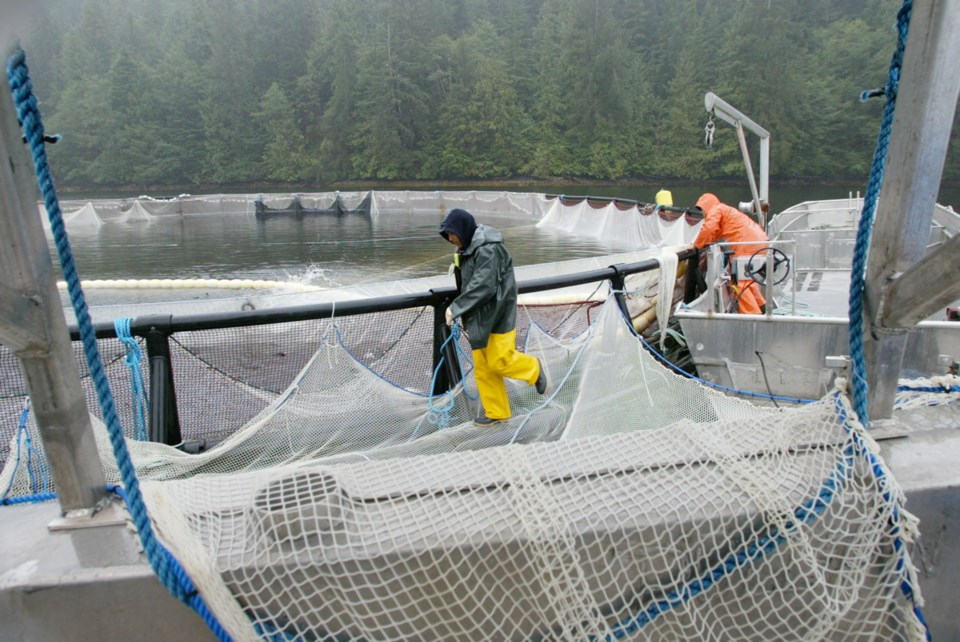 Two major fish farm companies capitulated Friday and went along with a B.C.-First Nations plan to shut down most or all of their operations in the Broughton Archipelago within five years.
Two major fish farm companies capitulated Friday and went along with a B.C.-First Nations plan to shut down most or all of their operations in the Broughton Archipelago within five years.
The agreement closes years of arguments, with the companies optimistically trying to pitch a forced retreat as a step forward.
The announcement was unmistakably an overwhelming victory for the anti-fish-farm camps that have been protesting for years the international firms’ operations near wild salmon migratory routes in waters off northern Vancouver Island.
It was a day of multiple wins for the First Nations prominent in the long-running campaign against farmed salmon. They not only got most or all of the industry to shut down in that region, they got more guarantees of full involvement and recognition of the need for their informed consent on related developments in the future.
They secured a key role in a monitoring and inspection program that could see First Nations become a powerful regulatory agency as the industry winds down over the next five years.
They also managed an interesting power shift. B.C. has limited authority over salmon farms — it’s mostly a federal responsibility. The B.C.-First Nations shutdown agreement is presented as a “recommendation.”
But it’s a done deal. Federal Fisheries Minister Jonathan Wilkinson was on hand to promptly endorse and welcome it. So the north Island bands powered their way through the jurisdictional split to a big win.
Finally, Premier John Horgan presented the salmon farm deal as a “template” for how forestry, mining, natural gas and other resources can be dealt with in First Nations traditional territories.
“That’s the exciting part,” Horgan said. He was referring to the collective mutual respect built during a year-long process. But the idea that an agreement guaranteeing a major retreat by an industry is being considered a model will give some people pause.
The big downside is the loss of a big share of production in B.C.’s most valuable agricultural export and the potential curtailment of several hundred jobs in a relatively high unemployment region.
But both companies said if the gradual phase-out is managed right, job losses will be minimal.
There were few details on that front.
The timetable for the 17 active salmon farm tenures in the Broughton calls for staged closures to a point in 2022 when there will be seven left. They will close unless First Nations agreement is secured for continued operation, something that at this point looks unlikely.
The staging is scheduled so that a wild salmon migratory route through all the islands will be cleared of fish farms in the next two years.
The deal shifts the understanding of the impact of net-pens on wild salmon. Arguments ran for decades about the overall impacts. The farms got government approvals for years, but opponents insisted they were bad for wild fish.
The deal now makes clear most authorities concede salmon farming is bad for wild fish.
The CEO for one aquaculture company, Marine Harvest’s Diane Morrison, said the schedule allows for viable production during the transition and the company will continue to invest in employees and equipment.
“We see the … recommendations as a positive step toward building mutual goodwill, trust and respect as we work to earn First Nations consent of our operations in their territories.”
The company is looking to replace the lost tenures in more hospitable territories and announced plans to start talks on an ocean-based containment pilot project, a system that eliminates many of the concerns about open-pen farming.
Its pens on the closure list produce $200 million a year worth of economic benefits, the company said.



